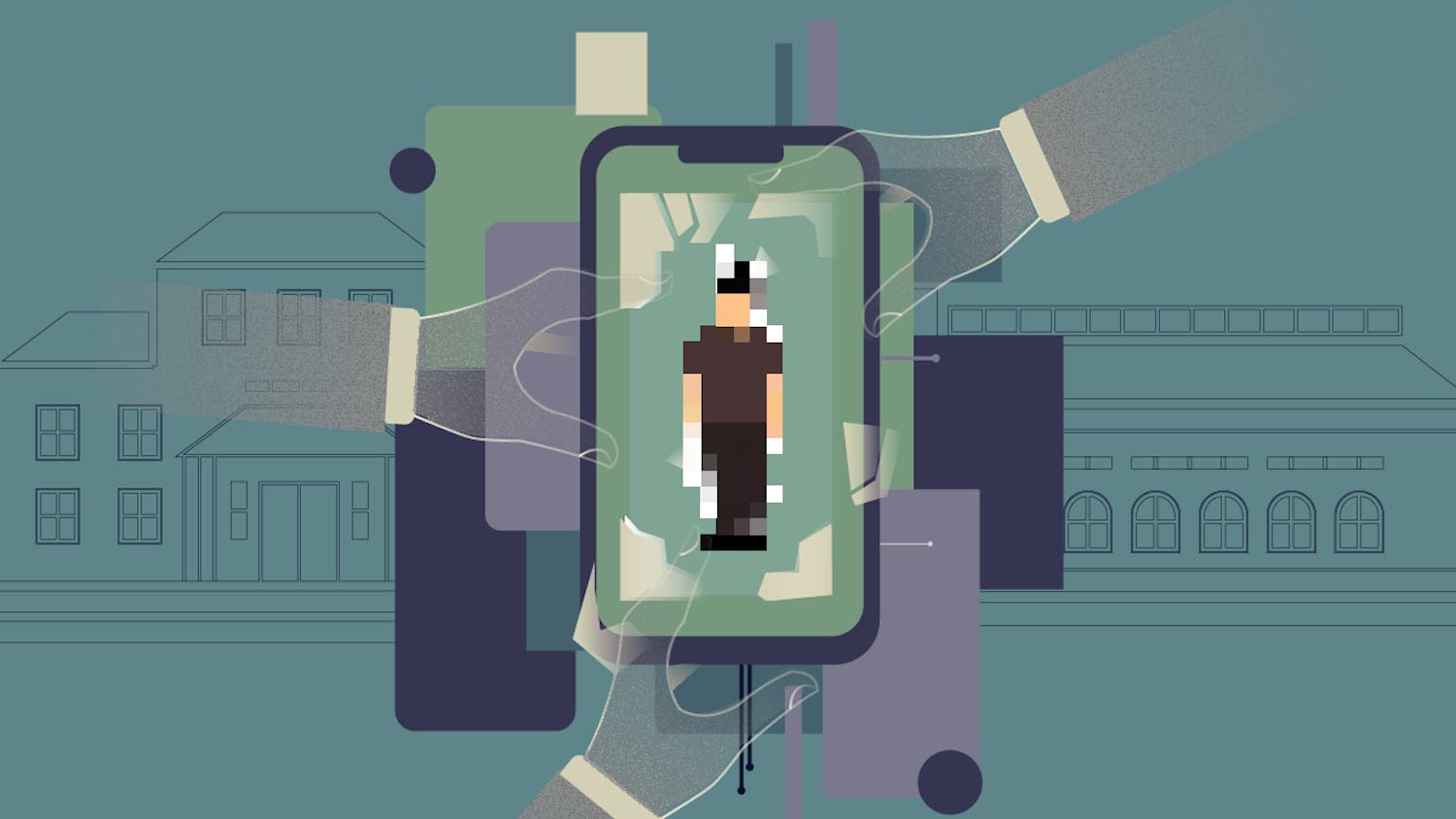Next to the Reitz Union’s barbershop is a mural reading, “AI: transforming our lives for the better.”
This wall, while pretty, is nondescript and non-specific. It is easy to stare at it and not really take anything in.
We call ourselves an AI university. The artificial intelligence page of the UF website claims we are on the brink of a fourth digital revolution. The page — singularly focused on our AI policy and research — highlights specific uses of the technology.
The highlights given should be an example of how the president can reshape his communications. The information is there, he just needs to communicate it.
There have been a few common features of the handful of public and private statements by our new university president, Ben Sasse. These include a focus on how UF is an extraordinary place for growth, the need to foster innovation and the repeated mentions of AI and computing technology.
The capacity for growth and the need to foster innovation are ideas I wholeheartedly agree with. Sasse fails to really dig into the speed of HiPerGator, the language modeling of ChatGPT or the crop development of IFAS. His use of non-specific, vague language leaves much to be desired.
I want to give Sasse the benefit of the doubt that he is meeting with stakeholders to craft how the university implements emergent technology into our lives. However, I am not convinced he has a real, clear vision.
In one of his first statements to the UF community, he said we “will be fundamentally overhauled by AI.”
At his State of the University Address to the Faculty Senate, he discussed “new technologies” and how they will shape classwork.
A recent article from UF News, an arm of the university’s communications, describes considerations for AI implementation as a key part of his “far-reaching vision.”
I am not comforted by any of what I have read or seen as a STEM student at UF. Although much of his artificial intelligence technology policy will be realized far after I graduate, I have only seen buzzwords without substance.
There have been mentions of an overhaul and reshaping our future, but how is unclear.
In real-world marketing, AI is usually used as a stand-in for emergent machine-learning and computing technologies. Sasse’s positive discussions on our work with HiPerGator are an example of actual, specific goals. I thank him for that. Namely, his desire for more classes to implement the technology is a step forward.
As someone who toured the HiPerGator facility, I can recognize the impressive work we are doing. Thanks to an NVIDIA partnership, we have massive servers that help process data from across campus at breakneck speeds.
In Malachowsky Hall, we will be teaching a whole new generation on programming, data processing and a multitude of work in technology.
Despite that, we are far from the AI technology envisioned in movies. Whether Sasse’s words are optimistic and aspirational or unclear and buzzword-driven remains to be seen.
His general language, however, makes it seem like he does not understand our part in that emergent technology. In the examples I mentioned, he focuses more on a lofty vision of AI without focusing on our part in it and the tangible changes it will bring to UF.
The language he is using, as one student described it to me, is akin to how venture capital firms talk. We are not a private company that can afford to use buzzwords. We need to be clear in our vision and clear in what we are doing and who we are involved with.
My ask is simple: Please, Sasse, really dig into the work our engineering departments, HiPerGator, the new Malachowsky Hall and what others in STEM are doing.
I get the hype around AI is strong; I even get the need to highlight that UF has a place in this new digital revolution. Despite that, our place in this is amorphous at best.
I suggest looking at what the University of Michigan is doing as a decent example. UM president Santa Ono recently revealed plans to offer generative AI tools to complement coursework at the university.
While Ono deals in plenty of generic language about DEI, it at least is part of a larger, concentrated push. More importantly, it is part of a clear communication and grounds itself in the use of technology that exists now.
Ronin Lupien is a UF biomedical engineering senior. Follow him on twitter @LupienRonin.






